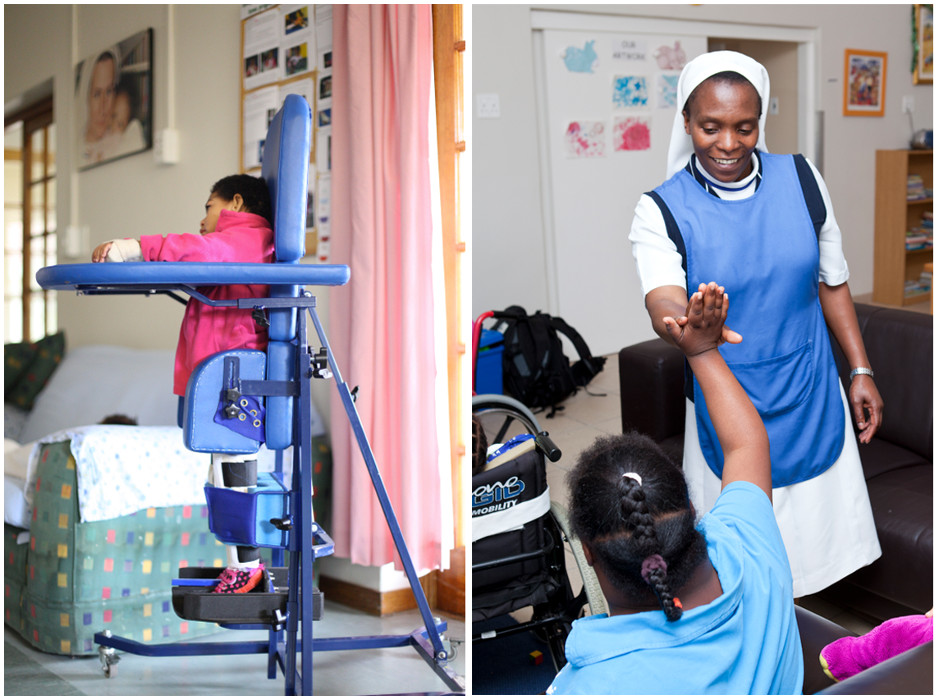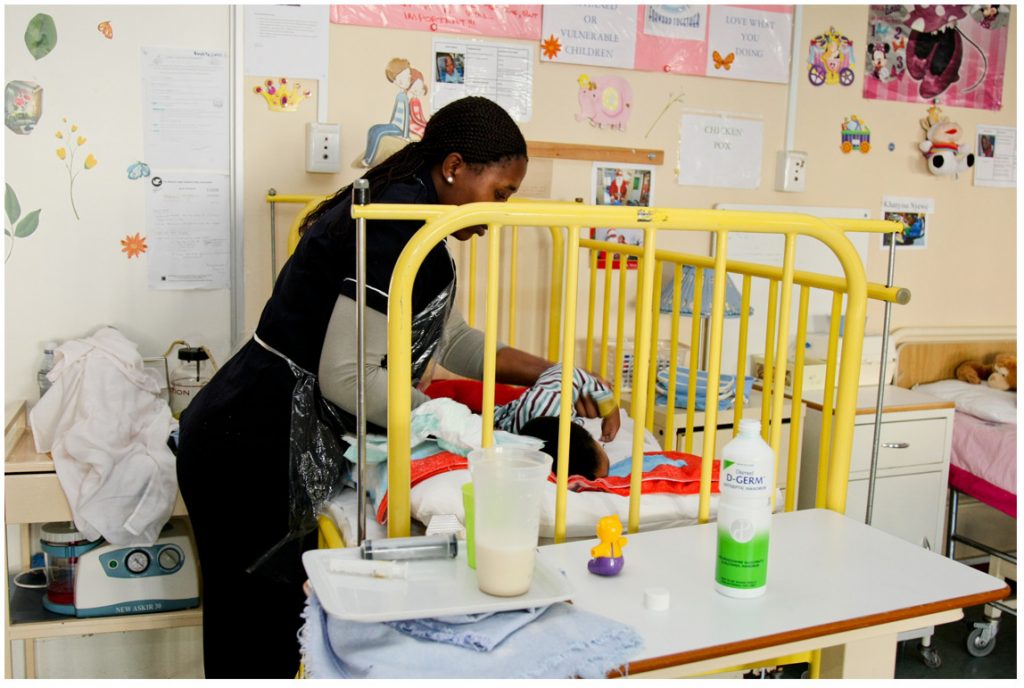Nazareth House is registered to accommodate 40 profoundly disabled children from birth to 18 years. Many families disown or abuse their children because their disability is a burden on them or their medical status may be exposed and the family ridiculed because of it. All our young beneficiaries come from previously disadvantaged and impoverished communities.

Nazareth House provides long-term residential care to children ranging from ages 5 years to 18 years who have very special needs and absolutely no other source of care and support. These severely physically and mentally challenged girls, all with variety of disabilities such as Cerebral Palsy, Down’ s syndrome and Foetal Alcohol Syndrome, live in a purpose-built, cottage on the grounds of Nazareth House in Vredehoek, Cape Town. Given their very special needs and challenges, they will most likely remain permanently in our care.

The Department of Social Development approached Nazareth House with the request to provide terminal care to children, where no further medical intervention was possible. Normally these children would lie in a hospital ward or institution and pass away within a cold, clinical environment, as their families have either abandoned them, or can no longer care for them.
These children have very particular medical needs, which home-based care cannot alleviate. Our Special Care Unit offers around-the-clock palliative and terminal care to medically vulnerable children living with life-threatening conditions. It is almost impossible for a child to communicate that he/she is in pain when he/she has Spastic Cerebral Palsy with Microphaly and Epilepsy. He/she has no expressive language apart from crying. Some would assume that he/she is just naughty and irritable and may neglect him/her even further. This was the situation of one of the boys in our care who has been suffering for over 9 months with severe bedsores, laying alone in a hospital, unable to contract or flex his knees, elbows and wrists, he could do nothing more than cry nonstop and excessively. We identified his crying as a plea for love and comfort when he was admitted into our care. It did not take long for our dedicated staff to pinpoint all the problems and offer immediate relief. His chronic sores would soon be healed and with the intervention of occupational therapy his positioning was changed so that his sores would not reoccur, and he would be in less pain and experience more comfort.
Dedicated massage treatment to assist with the contraction of his joints, has allowed the smile to reappear on this precious child’ s face again, and if a tear is seen on his cheek, it is one of happiness. The dedicated staff members are not only focused on the wellbeing of the child, but in some cases we are lucky enough to work with the parents so that the child may be reunited with them. Encouraging this little boy’s mother to spend as much time as possible with him and learn how to care for him properly, has resulted in him returning home to his family, weighing 2kg heavier and in improved health than when he was admitted.

All the children will still be placed under the children’ s act as this unit is just an extension of our existing work and not an additional program.
